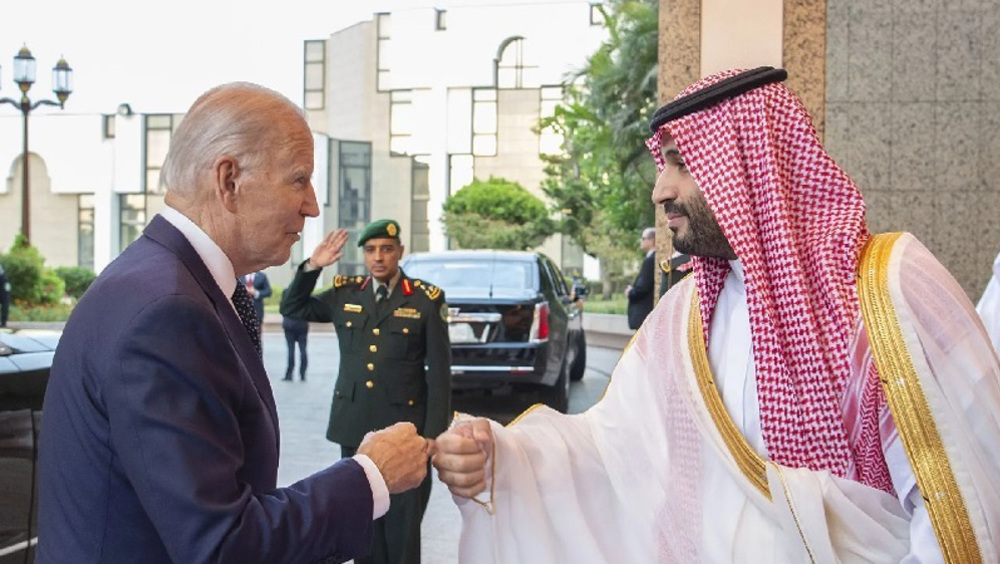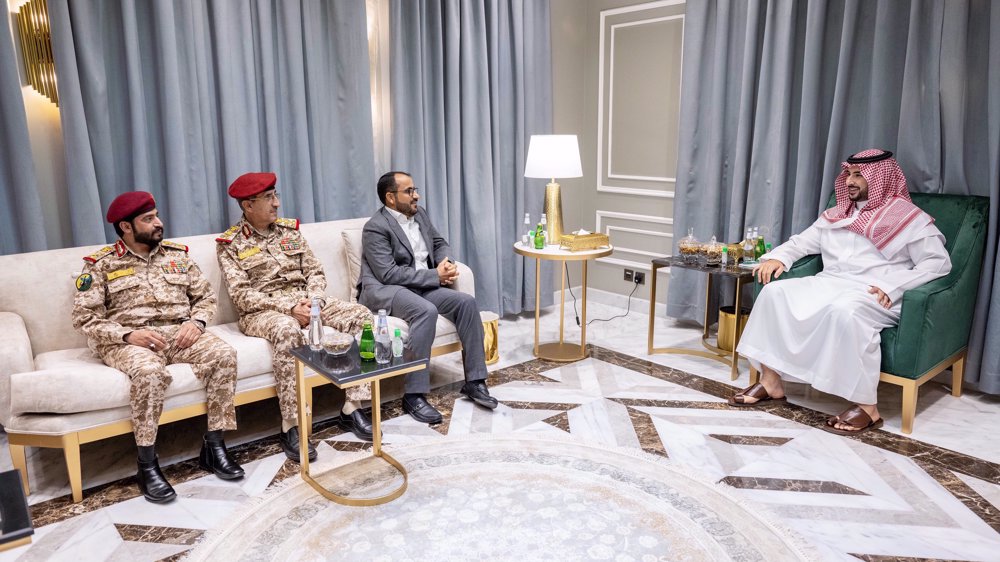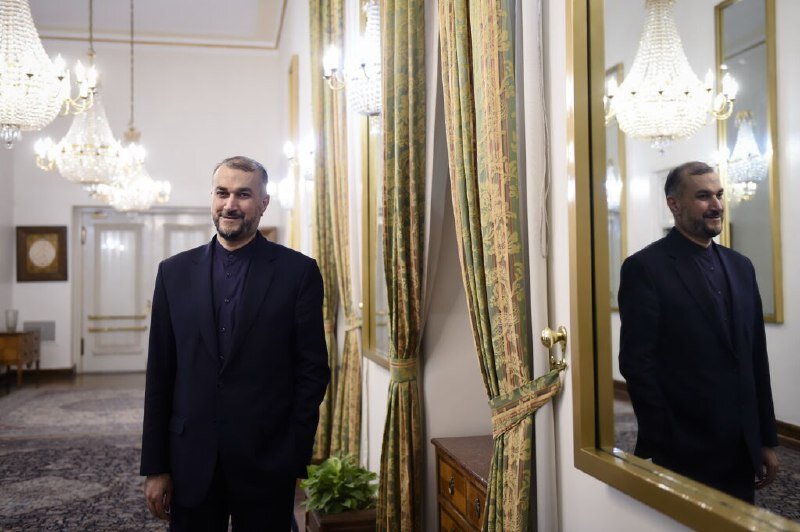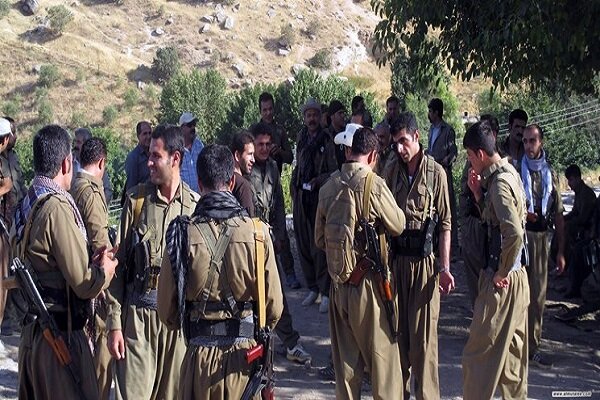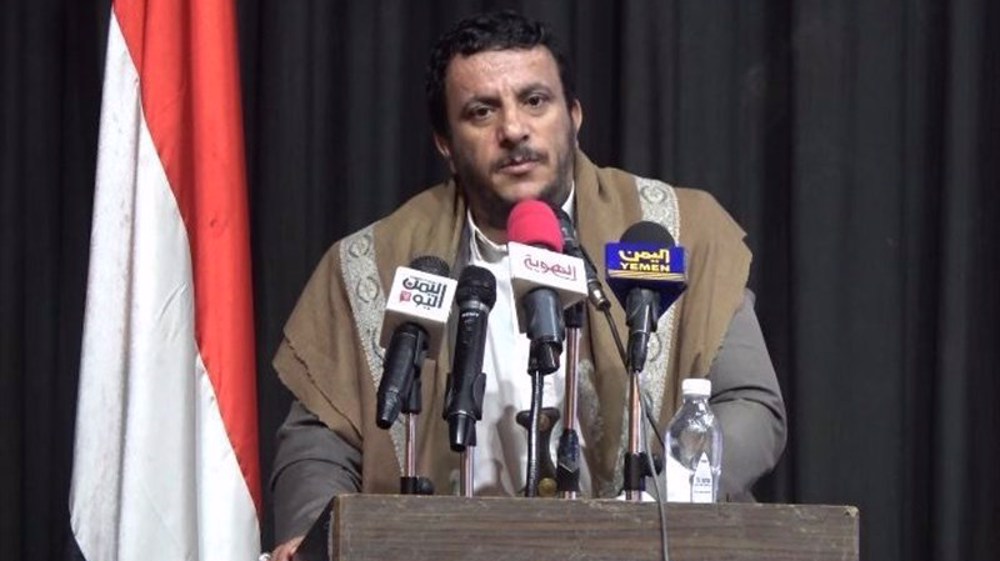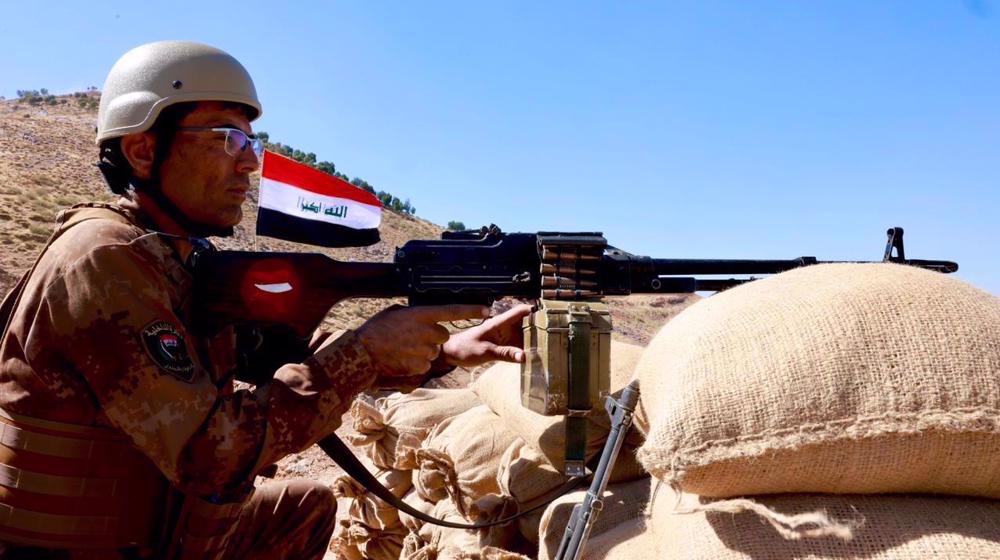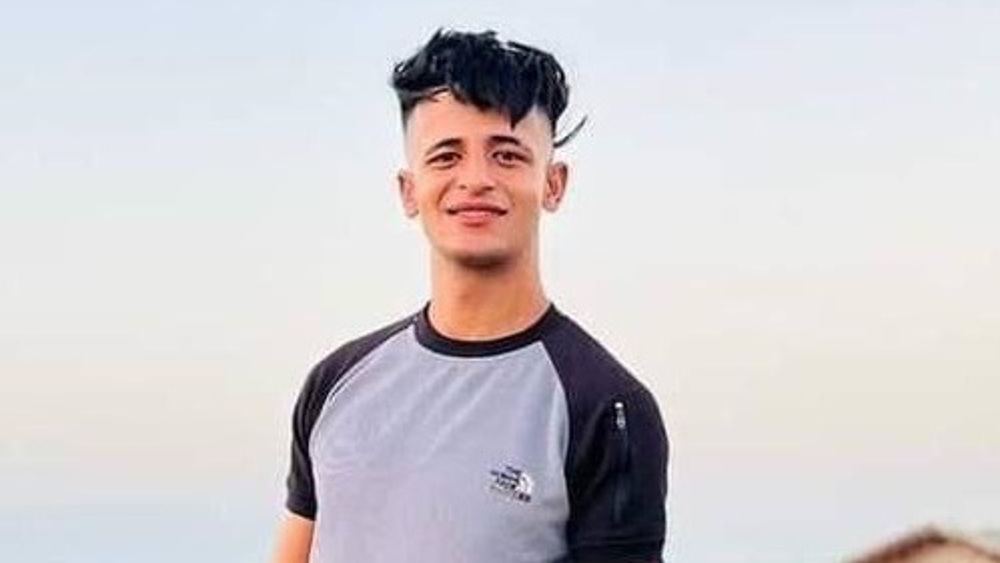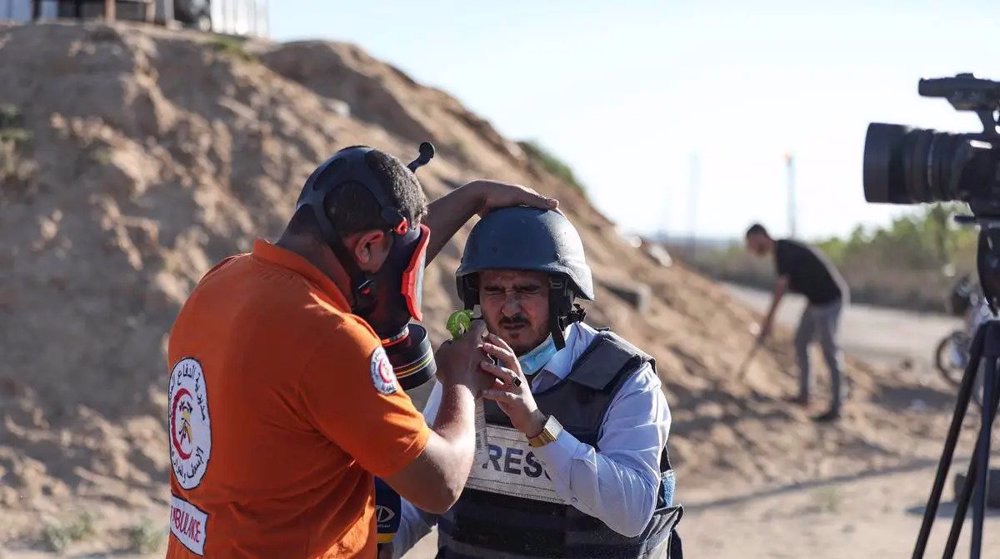The US and Saudi Arabian officials are reportedly discussing the terms of a security agreement resembling those with Washington’s East Asian allies, in what is viewed as an incentive for the kingdom to normalize relations with the Israeli regime.
Citing unnamed American officials, the New York Times reported on Tuesday that the administration of US President Joe Biden was discussing the details of a “mutual defense treaty” with Saudi Arabia that would look like US military pacts with Japan and South Korea.
“Under such an agreement, the United States and Saudi Arabia would generally pledge to provide military support if the other country is attacked in the region or on Saudi territory,” the report said.
“The move is at the center of President Biden’s high-stakes diplomacy to get the kingdom to normalize relations with Israel,” it added.
The report also said that the treaties in East Asia are considered among the strongest the United States has outside of its European pacts and that discussions to model terms after such treaties have not been reported so far.
It added that Saudi Crown Prince Mohammed bin Salman had called on Washington to help Riyadh develop a civilian nuclear program.
The US currently has fewer than 2,700 troops in Saudi Arabia, according to the report, however, it said, there are currently no serious discussions about having a large contingent of American troops in Saudi Arabia under any new agreement.
Any military pact with the kingdom would require support from two-thirds of the 100-person US Senate, which seems to be a tall order as the legislative body is torn evenly between the two major American political parties.
“Some senior US lawmakers, including top Democrats, see the Saudi government and Prince Mohammed as unreliable partners who care little about US interests or human rights,” it highlighted.
It also said that a security agreement deal would contribute to easing of “Arab-Israeli tensions,” and also have “geopolitical significance” for Washington.
In late July, the Biden administration announced that a deal for Israel and Saudi Arabia to normalize relations may be on the horizon following National Security Adviser Jake Sullivan’s talks with Saudi officials in Jeddah.
In order to sign a deal with Israel, Riyadh publicly asked Tel Aviv to implement the 2002 so-called Arab Peace Initiative to establish a Palestinian state first.
However, members of the far-right Israeli regime, led by Prime Minister Benjamin Netanyahu, say they will not make any concession to the Palestinians as part of a potential deal for normalization of relations with Saudi Arabia.
Washington’s efforts to add Saudi Arabia to the list of Arab countries that have signed the Abraham Accords come at a critical time when Biden is seeking re-election and Washington has failed to pull the kingdom farther from China’s orbit and hamper Beijing’s efforts to expand its influence in West Asia.
The UAE, Bahrain, Sudan, and Morocco signed US-brokered normalization agreements with Israel in 2020 under former hawkish President Donald Trump, drawing condemnations from Palestinians who censured the deals as “a stab in the back of the Palestinian cause and the Palestinian people.”

